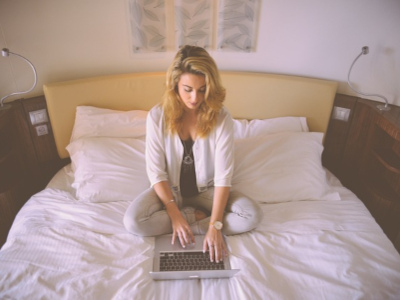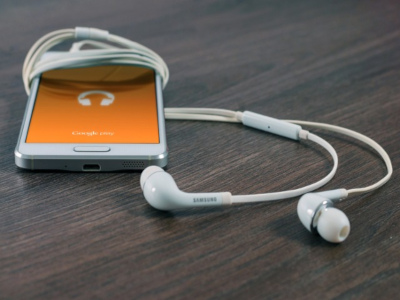Many people keep their smartphone next to them when they go to sleep. Because of this they are able to immediately answer calls, texts and emails. However, people don’t realize that your sleep and brain health is affected by your smartphone habits.
What might seem as a harmless habit can actually have a big impact on your overall health. For example, continuously scrolling stimulates the brain and delays REM sleep. This results in being awake beyond your normal bedtime. Although, your sleep is not just disrupted by being on your phone. What you are doing on your smartphone makes a difference. Studies have shown that a more passive use of technology does not have much of an impact on your sleep compaired to active use. Passive use includes, listening to music or watching a non-distressing TV show. Active use includes things, such as texting or scrolling on social media.

Because of the smartphone era most people are not able to log off, even when sleeping. This can have a negative effect on our health. That is because:
It keeps the mind engaged
The last thing our brain needs before sleeping is additional information and stimulation. Even quickly checking your phone can engage your brain and delay sleeping. Your mind can stay active and engaged long after you have scrolled through social media or responded to a few work emails. Additionally, it is not only the alertness you get from scrolling through social media late at night.
Thinking about or feeling your smartphone turning off and listening for that email chime that contributes to keeping the mind engaged.

The light from your phone screen may have an impact
the blue light from your phone is an artificial color that mimics daylight. This can be a great solution during the day to feel more alert but at night we need the opposite. Studies showed that the blue light your phone emits contributes to bad vision. It can also be bad for your sleep as exposure to blue light may affect your internal clock and throw off your circadian rhythm, which is in tune with light and dark. That’s why you feel more tired when the sun starts to set and why you feel more energized when it is light. In addition, research found a connection between suppressed melatonin levels and exposure to blue light. Melatonin is a hormone that is responsible for controlling your sleep-wake cycle. When there is a lack of melatonin in the body, you may experience insomnia, tiredness during the day and irritability. However, this might not happen to everyone as the duration of screen time and thus the blue light we receive plays a part in our sleep quality. Moreover, the content you are looking at has probably more of an impact than the blue light we receive from the screens.
You may encounter content that causes intense emotions
Going to bed and falling asleep should be a peaceful, happy and relaxing experience. Engaging with your phone too close to bedtime can negatively impact those feelings.
For example, scrolling through social media can make you feel upset, anxious or stressed. Stress and anxiety are often two major reasons for disrupted sleep. Even seeing something right before bed that makes you feel happy can trigger a response that extend the duration of falling asleep, which consequently delays REM sleep. These emotions can leave you staring at the ceiling for hours, feeling wide awake.
How long before bed should you stop using your phone?
There is no rule as to when you should put down your phone before bed. However, it is generally advised to tuck your devices away an hour or two before bed. That includes not just smartphones but also other devices and electronics. While smartphones are typically the main culprit, tablets and TVs can also contribute to poor sleep. If you are struggling with limiting your screen time before bed, you might need to put your phone in a different room or invest in an alarm clock. There are also options within your phone, such as setting it on “do not disturb” or “night mode” to minimize distractions and notifications that can help get you in the mood to snooze. Furthermore, it is important to establish a relaxing bedtime routine and discourage activities that can lead to anxiety or a high emotional response.
Sources:
https://health.clevelandclinic.org/put-the-phone-away-3-reasons-why-looking-at-it-before-bed-is-a-bad-habit
